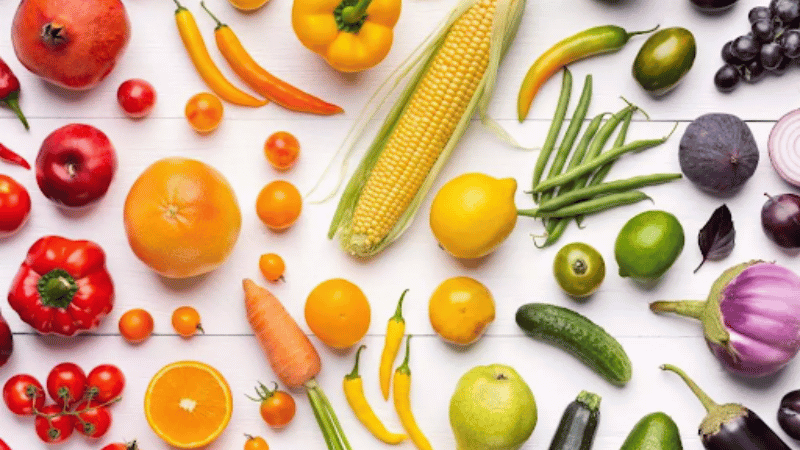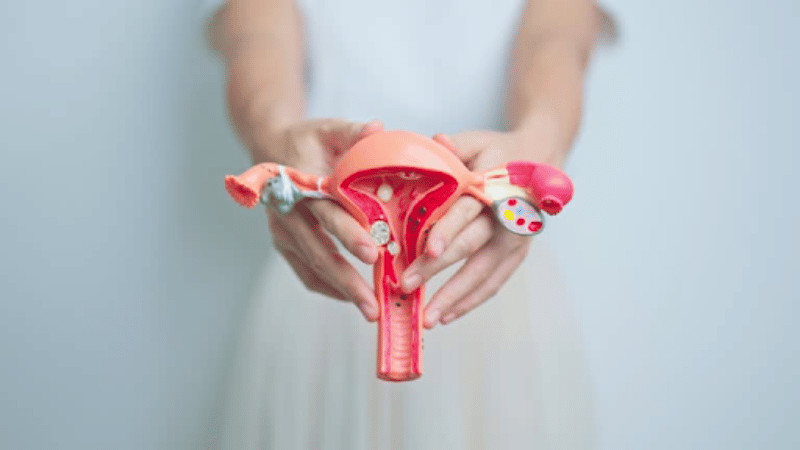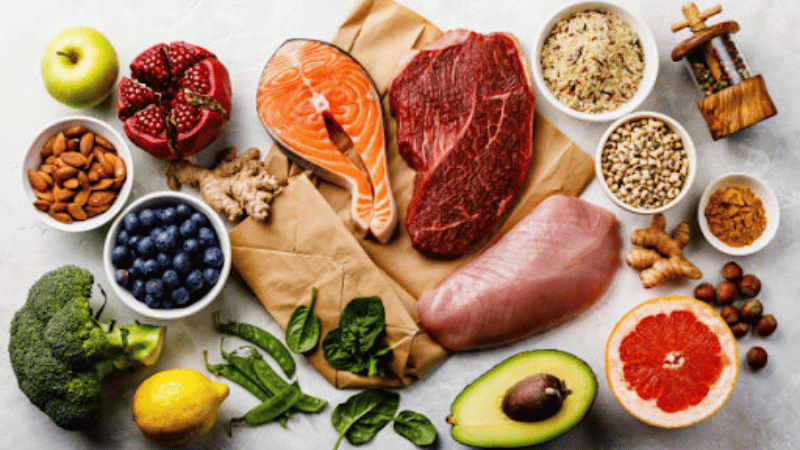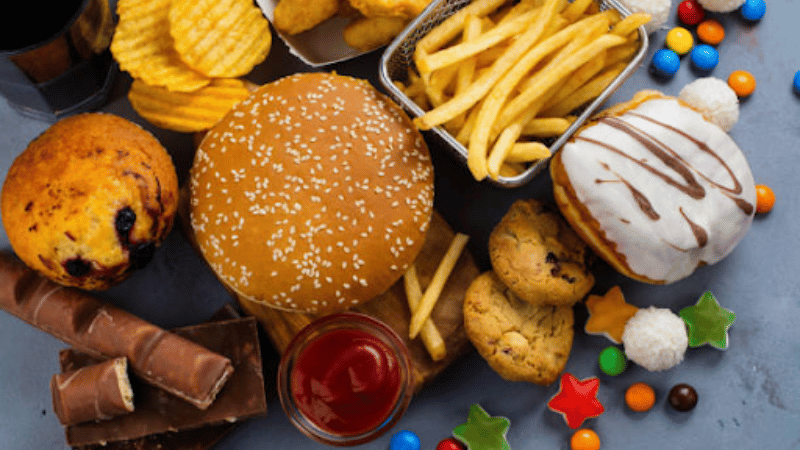
Spoiler alert: While a diet tailored for fibroids can be a powerful tool in managing symptoms, it’s important to understand that it won’t magically cure them. What you eat can significantly impact your overall health and well-being, and certain dietary choices may help alleviate discomfort associated with fibroids. Let’s dive into which foods can be your allies and which ones might be better left off your plate.
Fibroid symptoms are influenced by many factors outside of our control, such as age, ethnicity, and family history.
However, focusing on a healthy diet for fibroids, can help manage painful or uncomfortable symptoms. Incorporating regular exercise and stress management can also support overall health and well-being.
If you have fibroids, seeking treatment or consulting with a fibroid specialist is crucial to effectively managing your condition and ensuring your overall health.
Get Fibroid Relief – Schedule A Consultation
Understanding Fibroids and Diet
Fibroids are benign uterine growths or tumors typically developing during a woman’s childbearing years. While they are non-cancerous, fibroids can cause significant health issues and discomfort.
These symptoms may include:
- Heavy or prolonged menstrual periods
- Pelvic pain or pressure
- Lower back or leg pain
- Abdominal swelling or bloating
- Frequent urination
- Constipation
- Pain during intercourse
- Anemia
Many women with fibroids experience no symptoms. However, even small fibroids can grow and cause issues later. If you’re unsure about symptoms, our symptom checker can help determine if you should consult a fibroid specialist.
Can Certain Foods Reduce Uterine Fibroids?
It is unrealistic to expect that a specific diet for fibroids will completely eliminate them. However, some studies indicate eating or avoiding certain foods when you have fibroids is a good form of preventative healthcare.¹ While eating healthy can help prevent fibroid development and temporarily relieve symptoms, a fibroid diet is not guaranteed to work. If you suffer from painful and debilitating fibroid symptoms, we recommend looking into specialized fibroid treatment.
While awaiting treatment, our fibroid specialists recommend incorporating healthy habits into your routine, such as regular exercise and a fibroid-friendly diet.
Can Certain Foods Cause Fibroids?
Although no specific foods can directly cause fibroids, some may contribute to their growth or worsen symptoms. Foods high in processed sugar, red meats, and refined carbs might exacerbate fibroid symptoms. On the other hand, a diet rich in vitamin D—found in fatty fish, eggs, and fortified foods—along with leafy greens and fruits may help prevent the growth of fibroids.
While a diet for fibroids can help prevent symptoms from worsening, the best method of dealing with fibroids is through proper treatment.
Why Should I Consider a Fibroid Diet?
Beyond the general health benefits to your physical well-being, a fibroid diet can help relieve symptoms or shrink the size of your fibroids. Although the exact cause of fibroids is still unknown, there are likely several underlying contributors. Aside from the risk factors such as family history and genetics, hormones such as estrogen and progesterone, as well as certain nutrient deficiencies, also affect fibroid development.²
At USA Fibroids, we encourage our patients to maintain good eating habits to benefit their long-term health and understand all fibroid treatment options. Regarding fibroids and diet, the food you eat impacts your hormones and health. Reducing your risk for fibroids means maintaining a healthy weight, managing your blood pressure, eating a well-rounded diet, and getting enough important nutrients like Vitamin D and potassium.
MEET WITH A FIBROID SPECIALIST
What Should I Eat On A Uterine Fibroid Diet Plan?
Along with helping reduce the likelihood of developing uterine fibroids and experiencing related symptoms, eating a healthy diet has other health benefits. Fibroids can lead to depression and anxiety in addition to their physical symptoms, so a change in diet could help alleviate both the physical and mental symptoms.
A few of the best foods for fibroids include:
- Fresh, lightly cooked vegetables, especially greens like spinach, lettuce, and broccoli
- A variety of brightly colored fresh fruits, such as pineapples
- Beans and legumes
- Fish, especially oily ones like salmon or tuna
- Lean, white meats like chicken or turkey
- Foods with Vitamin D, like low-fat milk and eggs
- Whole grains
- Potassium-rich foods like potatoes, bananas, tomatoes, and avocado
- Green tea
Foods with plenty of fiber, like whole grains, vegetables, and fruits, help maintain a healthy weight and regulate hormones. Anti-inflammatory foods and drinks like green tea, berries, leafy greens, nuts, and seeds can alleviate fibroid symptoms. Green tea is also beneficial because of its antioxidant properties, and it is easy to incorporate into your diet by drinking a cup or two daily, either hot or iced. Incorporating iron-rich foods combats anemia often associated with heavy menstrual bleeding caused by fibroids, while foods with Vitamin D manage fibroid growth.
Worst Foods For Fibroids
Certain foods can aggravate fibroid symptoms and should be limited or avoided in a fibroid-friendly diet.
Some of the foods to avoid with uterine fibroids include:
- Red meat
- High-fat, processed meats
- Any highly processed foods
- Added sugar of all types
- High sodium foods
- Soda and other sugary drinks
- Soy products
- Excess calories
- Caffeine and alcohol
Processed foods, like packaged snacks and fast food, usually contain high levels of sodium, unhealthy fats, and additives that can worsen fibroid symptoms. High-fat dairy products and red meat have been linked to higher estrogen levels.³ Soy products may also promote fibroid symptoms.² Meanwhile, refined sugars and carbohydrates, along with caffeine and alcohol, lead to weight gain and hormone imbalances.
Tips for Adopting a Diet for Fibroids
If you are considering adopting a fibroid-friendly diet, there are steps you can take today to get started.
These steps include:
- Meal Prepping: Consider planning meals according to a Mediterranean diet, which is rich in cooked vegetables, fish, legumes, and fresh fruit—components that may be beneficial for managing fibroids. Other diets to explore could include a plant-based diet focusing on whole grains, leafy greens, and healthy fats or an anti-inflammatory diet that emphasizes foods like berries, nuts, and fatty fish.
- Read the Labels: Paying attention to food labels lets you track your nutrient intake, helping you focus on healthy ingredients and avoid foods that promote fibroids.
- Replace the Salt: Use herbs and spices instead of salt for flavoring.
- Stay Hydrated: One of the best ways to manage fibroid symptoms is to drink plenty of water.
When starting a diet for fibroids, consult a dietitian or healthcare provider to help tailor a plan to your specific needs.
What Should I Do When a Fibroid Diet Isn’t Enough?
Even if you follow a healthy lifestyle and diet, it is still possible to develop uterine fibroids, experience fibroid growth, or suffer from worsening symptoms. If fibroids interfere with your everyday life, we want you to know that you have options. Some women are often told that a hysterectomy is their only treatment choice, but this is rarely true.
At USA Fibroid Centers, our experts offer a minimally invasive, non-surgical treatment alternative called Uterine Fibroid Embolization (UFE). UFE is performed as an outpatient procedure, involves less risk than fibroid surgery, and has a relatively short recovery time of only one to two weeks. We believe in making minimally invasive fibroid treatment accessible for all, which is why we have fibroid clinics across the country.
How UFE Works:
- One of our interventional radiologists will use ultrasound imaging to map your fibroids
- A tiny catheter will be inserted into your numbed upper thigh or wrist
- We inject embolic material into the uterine artery to block blood flow and nutrients to the fibroid
- Your fibroid will shrink and eventually wither away
Our on-site representatives can answer any questions so that you can make an informed treatment decision. Maintaining a healthy lifestyle is always a good idea and can help reduce the risk for long-term conditions, like uterine fibroids, but a proper treatment plan should be determined by a specialist.
If you want to find out if UFE is the best option for you or have any other questions about fibroids and diet plans, schedule your appointment today online or call 855.615.2555. We also accept most insurance plans.
Sources
- Jarosław Krzyżanowski, Tomasz Paszkowski, and Sławomir Woźniak, “The role of nutrition in pathogenesis of uterine fibroids,” Nutrients 15 no. 23 (2023): 4984.
- Andrea Tinelli et al., “Uterine fibroids and diet,” International Journal of Environmental Research and Public Health 18 no. 3 (2021): 1066.
- Hassan Malekinejad and Aysa Rezabakhsh, “Hormones in dairy foods and their impact on public health – a narrative review article,” Iranian Journal of Public Health 44 no. 6 (2015): 742-758.








